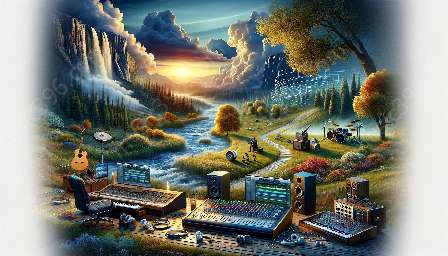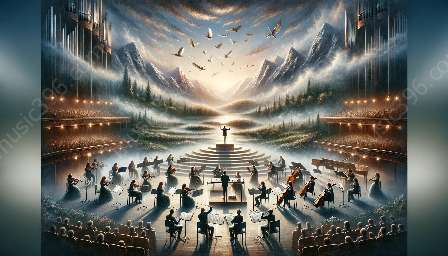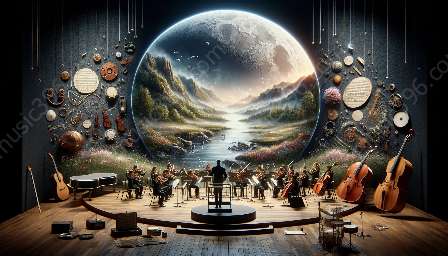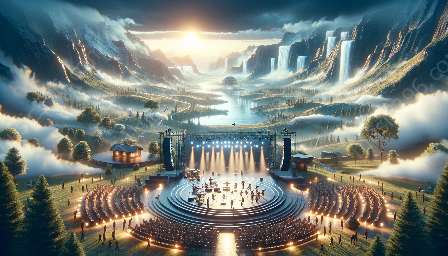Music has long been a powerful tool for engaging with historical, political, and environmental narratives, shaping and reflecting societal perspectives and cultural changes. The interplay between music and these narratives can be explored through various lenses, including the way music reflects historical events, responds to political ideologies, and raises environmental awareness.
Exploring Historical Narratives through Music
Throughout history, music has served as a medium for preserving and retelling historical narratives. It has the ability to transport listeners to a specific time and place, evoking the emotions and experiences of past events. Whether through traditional folk songs, classical compositions, or contemporary popular music, artists have used their craft to illuminate and immortalize historical moments.
For example, the protest songs of the civil rights movement in the United States, such as 'We Shall Overcome,' symbolized the struggle for racial equality and justice. These songs became anthems of the movement, providing a unifying soundtrack for those fighting for change. Similarly, classical composers like Ludwig van Beethoven and Dmitri Shostakovich have woven historical narratives into their symphonies, reflecting the tumultuous eras in which they lived.
Music's Interaction with Political Narratives
Music has also been a potent force in shaping and reflecting political ideologies and movements. Artists use their platform to voice dissent, advocate for change, or express support for political causes. Whether through overtly political lyrics or subtle musical motifs, music has the ability to engage with and influence political narratives.
During times of political turmoil, songs have served as anthems for resistance and revolution. For instance, during the Vietnam War, musicians such as Bob Dylan and Joan Baez penned protest songs that became rallying cries for anti-war sentiments. In more recent times, hip-hop and rap artists have used their music to shed light on social and political issues, amplifying the voices of marginalized communities.
Environmental Narratives in Music
As the world grapples with environmental challenges, music has emerged as a vehicle for raising awareness and advocating for sustainable practices. Musicians have utilized their artistry to draw attention to issues such as climate change, conservation, and the impact of human activity on the planet.
Artists like John Denver, whose song 'Take Me Home, Country Roads' celebrates the natural beauty of West Virginia, have woven environmental themes into their music. Additionally, genres such as world music often incorporate sounds and rhythms inspired by nature, serving as a sonic homage to the environment.
The Role of Music in Society
Music's engagement with historical, political, and environmental narratives underscores its fundamental role in society. It serves as a mirror that reflects the values, concerns, and aspirations of a culture, providing a collective soundtrack for the human experience. Moreover, music has the power to mobilize and unite communities, fostering solidarity and fostering social change.
By examining the intersections of music with historical, political, and environmental narratives, we gain a deeper understanding of the ways in which music both shapes and is shaped by the world around us. It becomes evident that music is not merely entertainment, but a multifaceted agent that influences and reflects societal dynamics.
References
- Middleton, Richard. Studying Popular Music. Open University Press, 1990.
- Solomon, Thomas. Political Culture and Musicians: An Historical Perspective. The University of Chicago Press, 2017.
- Levin, Robert D., and Stein, Steven J. Psychologist's Companion. Cambridge University Press, 2018.









































